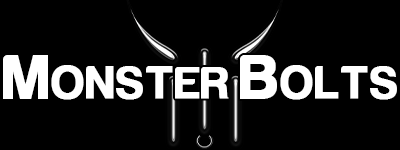Ultimate Guide to Screw Point Types: What They Are & When to Use Them
The tip or point of a screw is crucial in determining its performance and application suitability. Different screw points cater to specific materials and installation requirements—whether you're fastening wood, sheet metal, plastics, or heavier materials. Understanding these differences ensures you select the right screw every time.
Categories of Screw Points
Tapping Screws
Tapping screws create or "tap" their own threads in thin sheet metal, plywood, and non-metallic materials without requiring a pilot hole.
- Type A: Coarse threads, ideal for thin sheet metal, plywood, and older designs.
- Type B: Fine threads for lightweight metals, plastics, and plywood.
- Type AB: Combines features of Type A & B; versatile for sheet metal and composite materials.
- Type BP: Slightly longer and more pointed tip, perfect for misaligned holes in sheet metal or plastic.
Thread Cutting Screws
Thread cutting screws remove material as they create threads, ideal for harder materials that require minimal stress during installation.
- Type F: Multiple cutting edges, suitable for metals like brass, cast iron, and some plastics.
- Type 1 (Type D): Single flute, general-purpose, ideal for field replacements.
- Type 23 (Type T): Triangular cutting edge for efficient chip clearing, great in dense materials.
- Type 25 (Type BT): Similar to Type 23 but with coarser threads; best suited for softer materials and plastics.
Explore Monster Bolts’ full line of thread cutting screws: Thread Cutting Screws - Shop Here
Thread Forming Screws
Thread forming screws reshape the material without cutting, creating threads by displacing the substrate, thus suitable for plastics, metals, and composites.
- Type C: Blunt tapered point, requires higher torque; ideal for heavy sheet metals.
- Type CA: Fine or coarse threads, pointed gimlet tip for easier installation.
- Type PT: Perfect for low-density materials like nylon or wood, reducing the risk of cracking.
- Type TT ("Tri-round"): Forms threads without chips, ideal when cleanliness is critical.
Self-Drilling and Self-Piercing Screws
These screws eliminate pre-drilling, speeding up installation and improving stability.
- Self-drilling (Tek): Combines drilling and fastening, perfect for metals, plastics, and wood.
- Self-piercing: Needle-like tip quickly pierces thin sheet metal without sacrificing holding power.
Machine Screw Points
Precision screws for electronics, manufacturing equipment, and detailed applications.
- Dog point: Flat-ended protruding tip, excellent for permanent assemblies.
- Cone point: Cone-shaped tip suited for contoured surfaces.
- Cupped point: Grips easily, ideal for temporary projects.
- Rolled point: Chamfered cone tip, good for precise alignments.
- Rounded pinch point: Slightly rounded tip with pinched sides for gentle pressure.
Lag Screw Points
Lag screws or hex bolts provide sturdy connections for heavy-duty materials. They require pre-drilling and typically feature a gimlet-shaped tip.
Best Practices for Selecting Screw Points
- Match to Material: Always choose screw points specifically suited to your working materials (metal, plastic, wood).
- Consider Installation: Determine if pre-drilling is feasible or if self-drilling/self-piercing screws are needed.
- Torque and Stress: Opt for thread forming screws to avoid cracking sensitive materials, and thread cutting screws to reduce torque in harder substrates.
- Chip Management: For precision work or electronics, consider thread forming or chip-clearing points to avoid contamination.
Popular Use Cases
- Thin Sheet Metal: Type AB, Self-piercing, Self-drilling screws.
- Hard Plastics & Composites: Thread forming (Type PT, TT), Thread cutting (Type 25).
- Metal Fabrication: Thread cutting (Type F, 23), Self-drilling (Tek screws).
- Precision Assembly: Machine screws (Cone, Dog, Rounded pinch points).
Find Your Screw at Monster Bolts
Monster Bolts carries a comprehensive selection of screws for every application:
- Self Tapping Screws: Ideal for quick installation in thin sheet metals and plastics.
- Self Drilling Screws: Perfect for fastening materials without pre-drilling pilot holes.
- Bulk Sheet Metal Screws: Economical solutions for high-volume installations.
- Hex Lag Screws: Heavy-duty screws for structural wood and metal applications.
- Bulk Hex Lag Screws: Buy in bulk to save on your large-scale projects.
Explore our full product range and find the ideal fastener to meet your project's needs.
FAQs
- Do all screws need pilot holes? No. Self-drilling and self-piercing screws do not require pilot holes, while others like lag screws and machine screws do.
- Can one screw type be used universally? It's best to match the screw to the specific material and application for optimal results.
- Are thread cutting screws reusable? Typically yes, though threads may weaken after multiple reuses.
